Romanian village of Jamana drowns in industrial waste lake
The Romanian village of Jamana once basked in the middle of a fertile and green valley, and today lies at a depth of 90 meters under industrial waste. Travel photographer and journalist Amos Chapple (Amos Chapple), together with local photographer Ciprian Hord (Ciprian Hord), came to the place where the villagers were evacuated 40 years ago. And only a few remained.
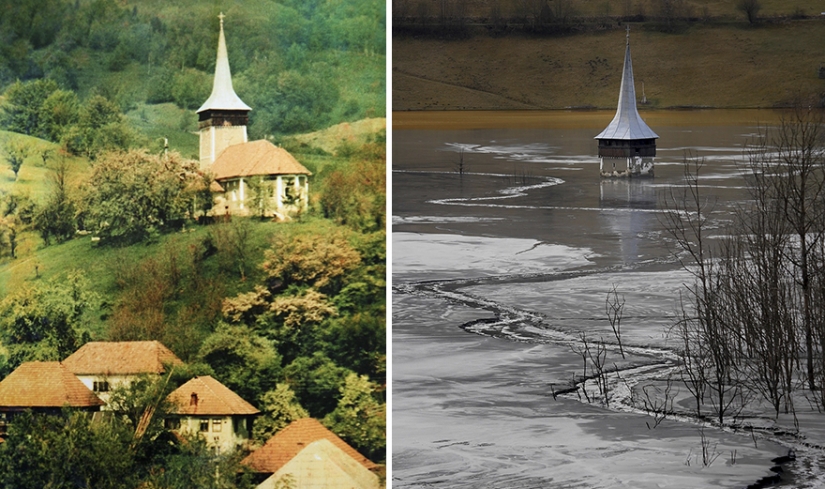
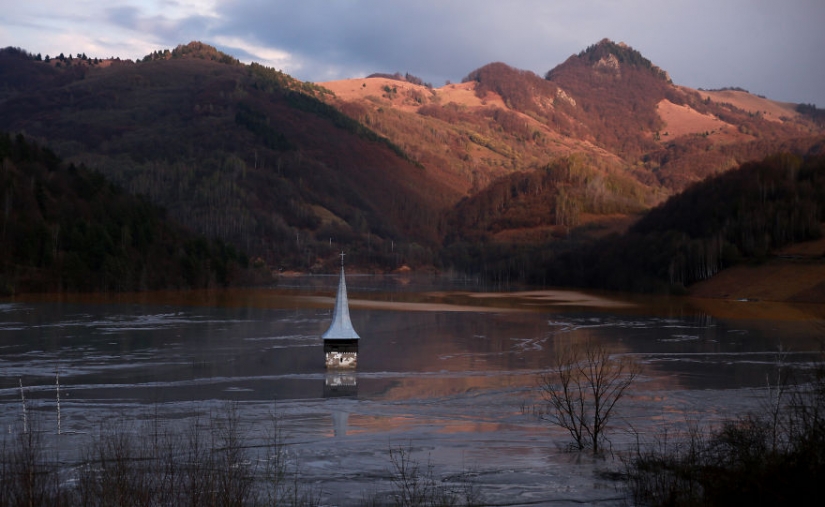
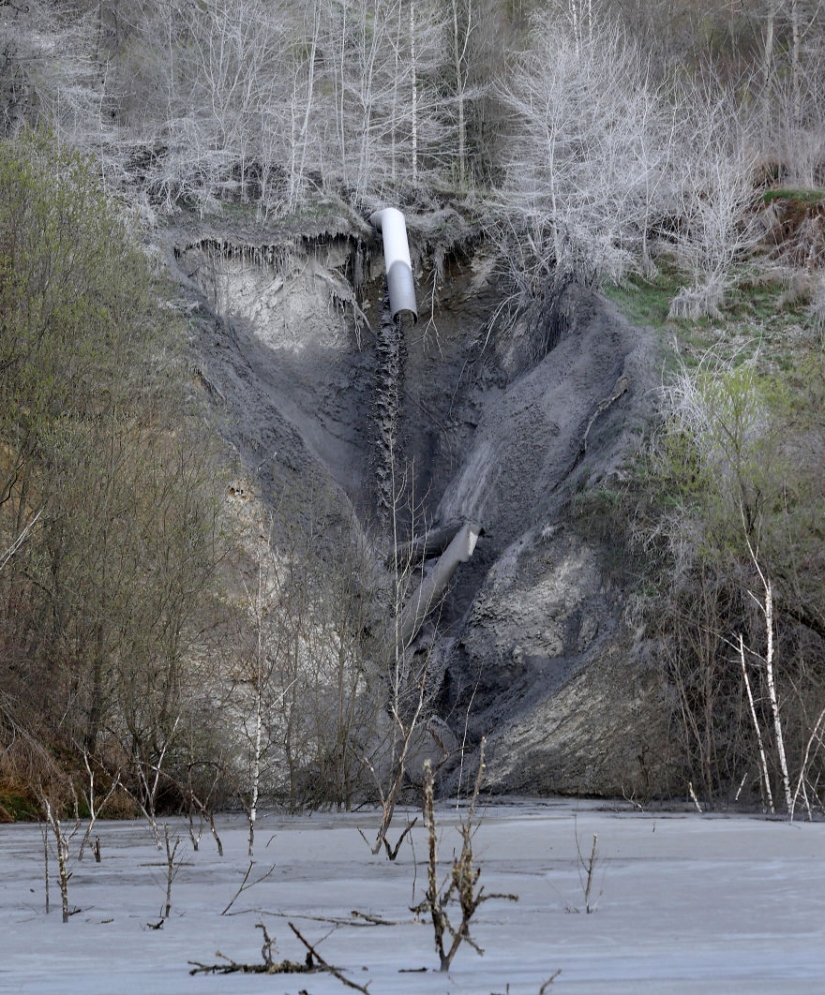
Jamana in the 1970s (yes, this is the same church as in the first photo).
In the spring of 1977, the dictator and president of Romania sent geologists with a message that the locals were preparing to move from their native village. In the mountains, at the foot of which there were settlements, a copper deposit was found. People were offered compensation for their homes — about two thousand dollars. 300 families from Jamana left their native lands and dispersed throughout the country.
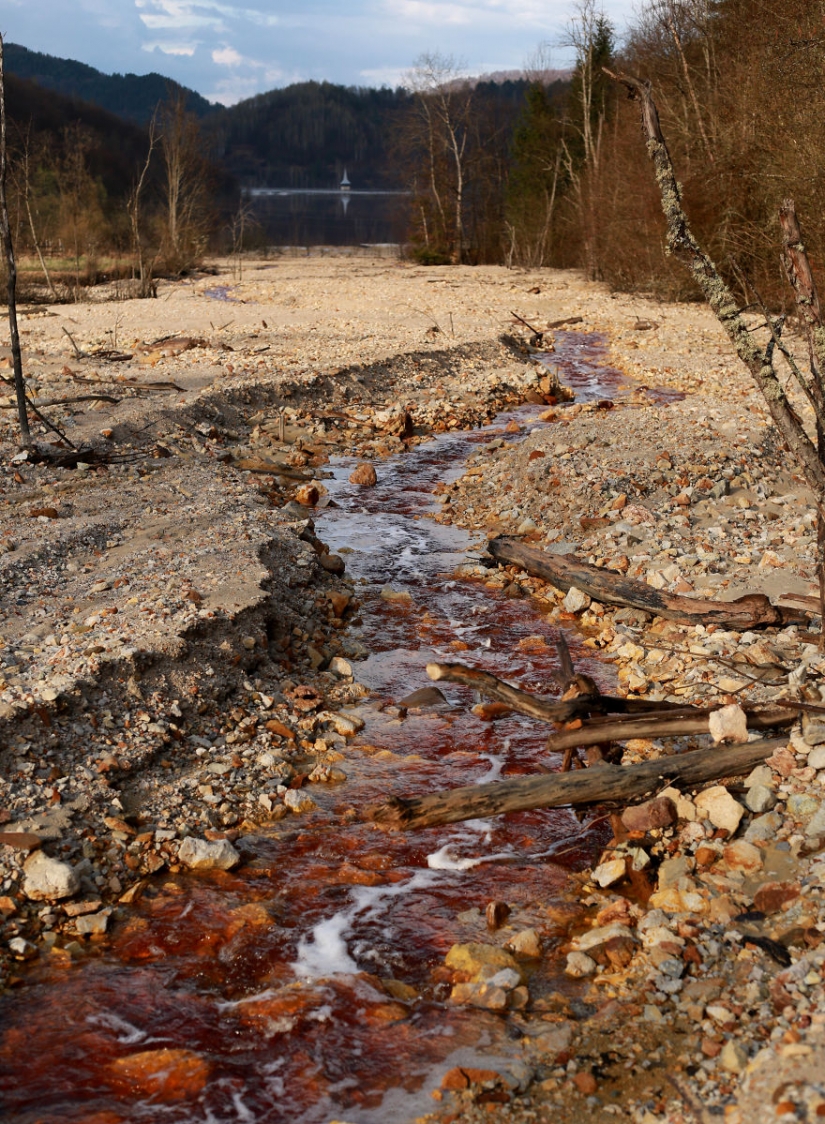
The work at the Rosia Poieni mine was carried out in full. It became the second largest copper mine in Europe.
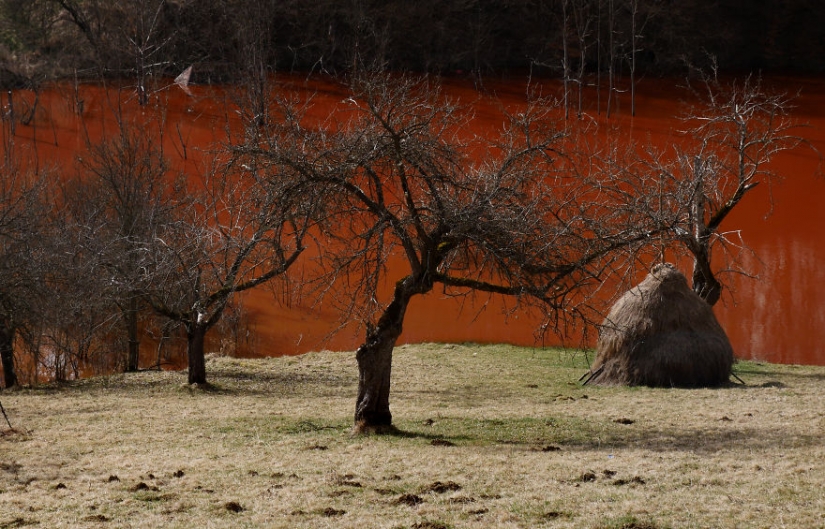
The authorities built a dam to close the Jamana Valley, and water contaminated with industrial waste began to fill the once-fertile land of the settlements.
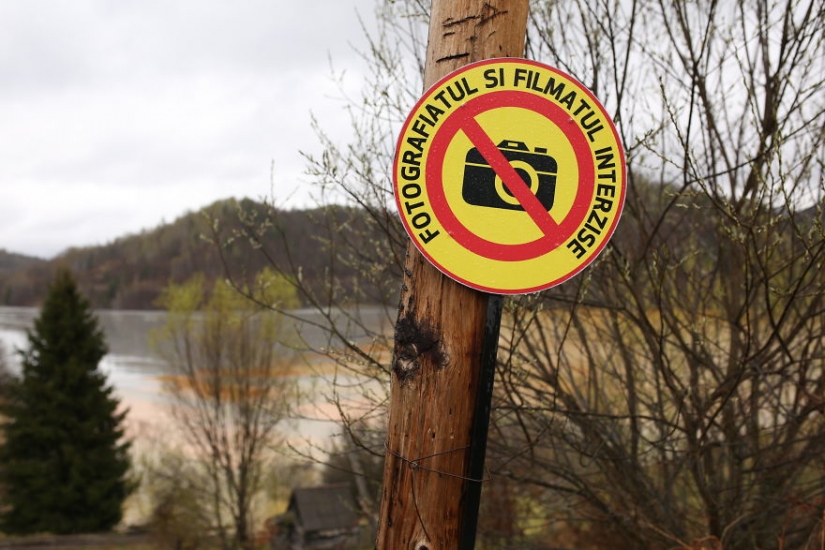
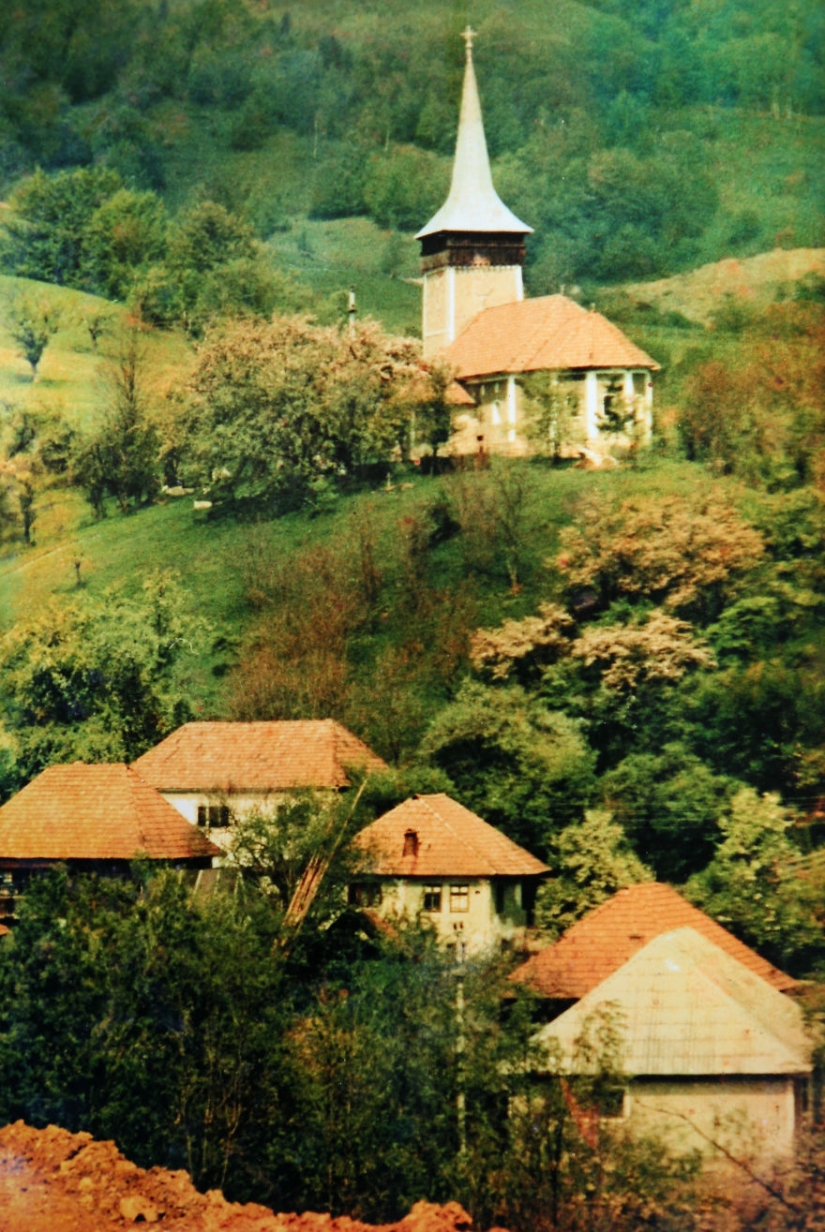
The level of the toxic lake continues to rise by an average of one meter per year.
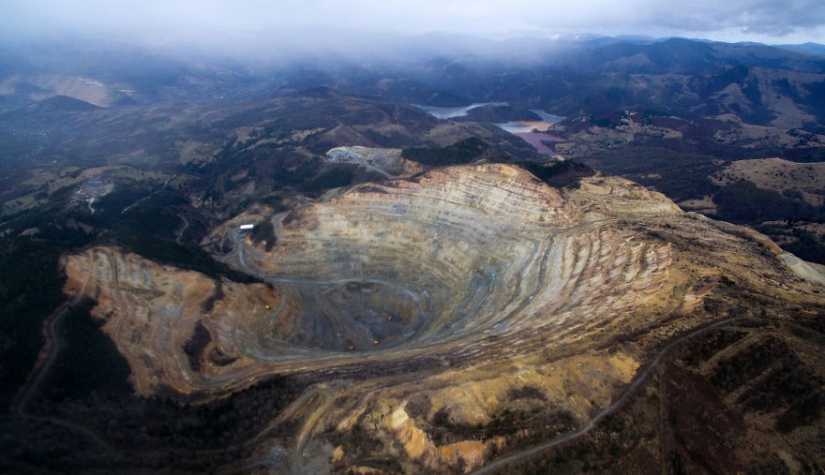
Some parts of the lake have become a place where acid mine drainage drains.
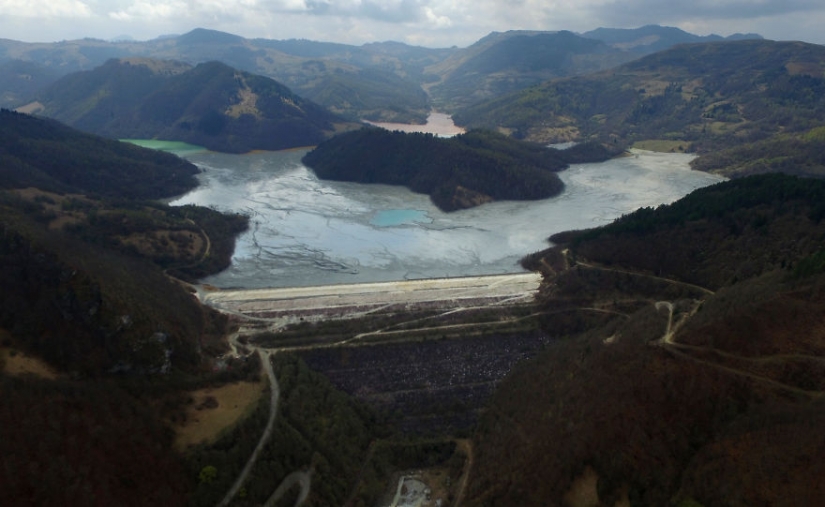
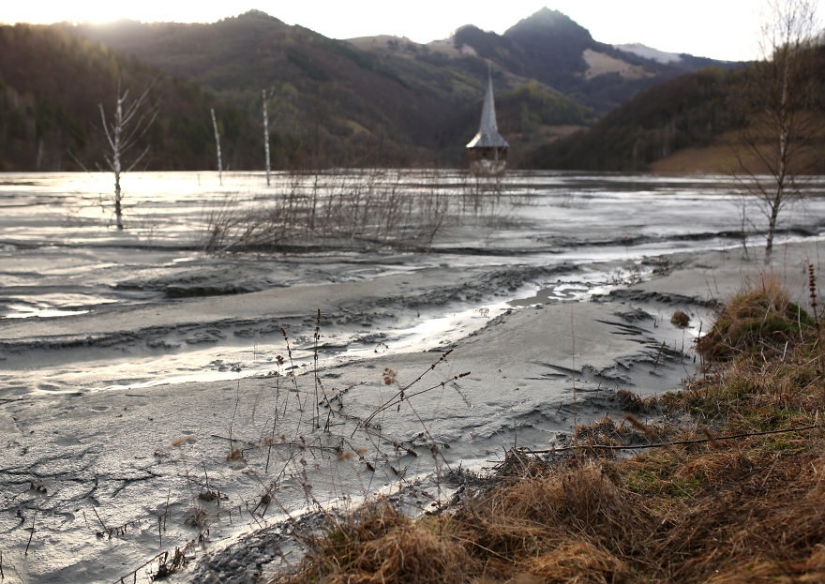
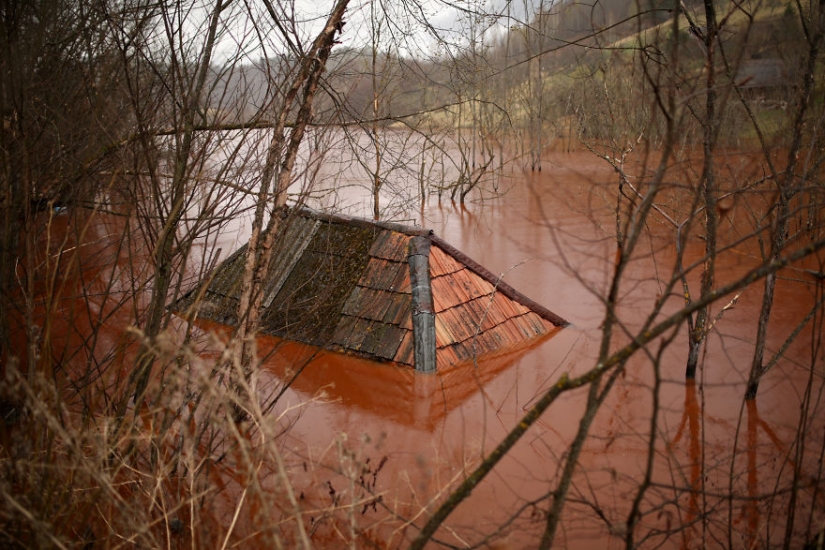
Despite the fact that the area is absolutely uninhabitable, not everyone has left their native lands.
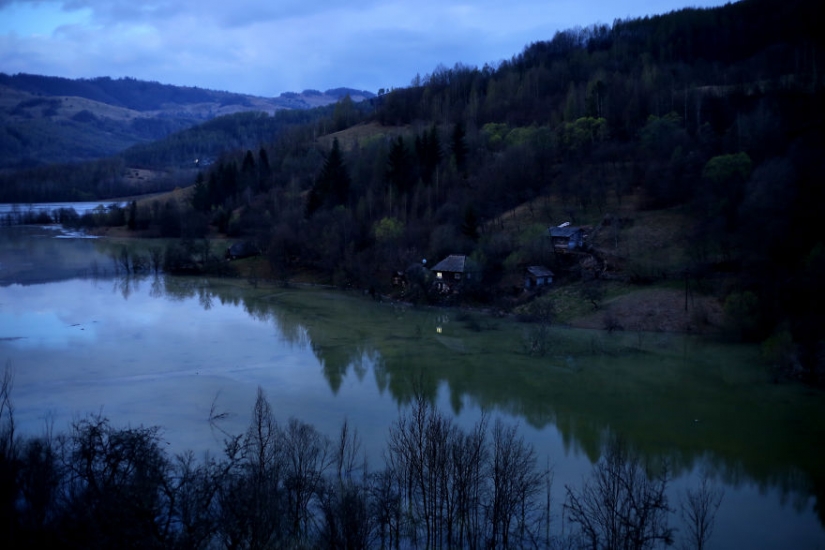
Maria Prata is one of the 20 villagers who remained. As the lake level rises, people move higher up the hills. 70-year-old Maria spent her entire childhood in Jaman, sleeping in a stable: "I'm on one side, the cows on the other."
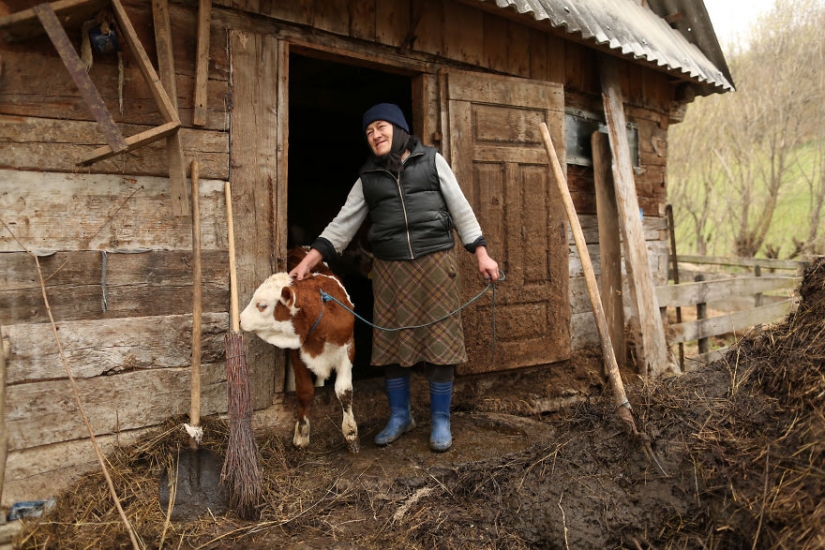
In the photo, Maria and her husband. A few years after the photo was taken, geologists came to the village. The woman reacts surprisingly calmly to the activities of the mines. "What's done is done. The village is destroyed. At least people have a place to work." However, like the other remaining residents, she cannot forgive the fact that the authorities broke one promise.

The villagers were assured that the graves of their ancestors would be moved. It never happened.
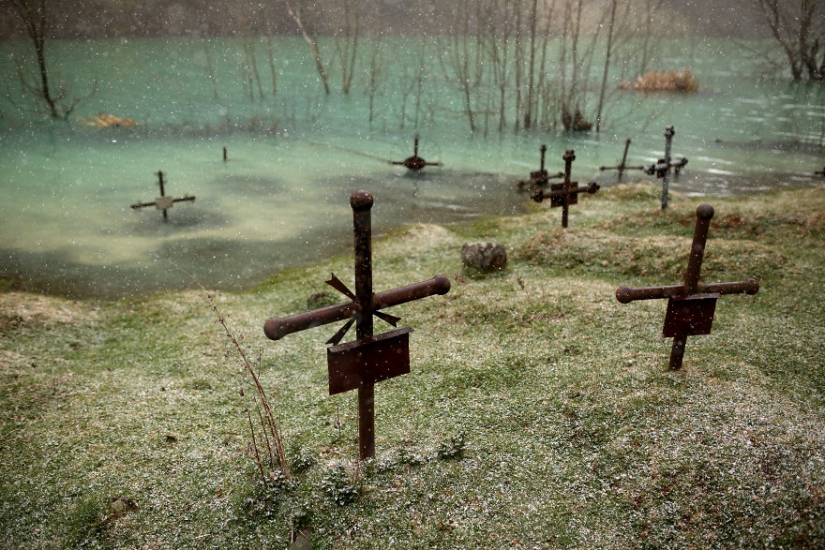
Ana Prata tends the grave of her husband, who died in 2012. The woman wants to be buried here. The grave is located on a high hill above a toxic lake, so that it does not suffer the sad fate of the graves of Ana's parents and grandparents.
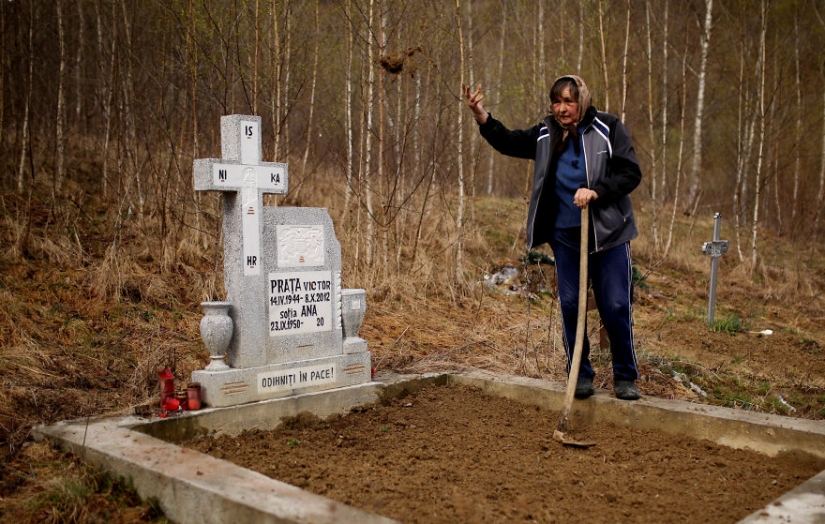
The general manager of the mine, Rosia Poyeni, speaks to the press against the background of the waste lake. He said that he knew nothing about the fate of the old graves, but assured that the church near the churchyard will be moved.
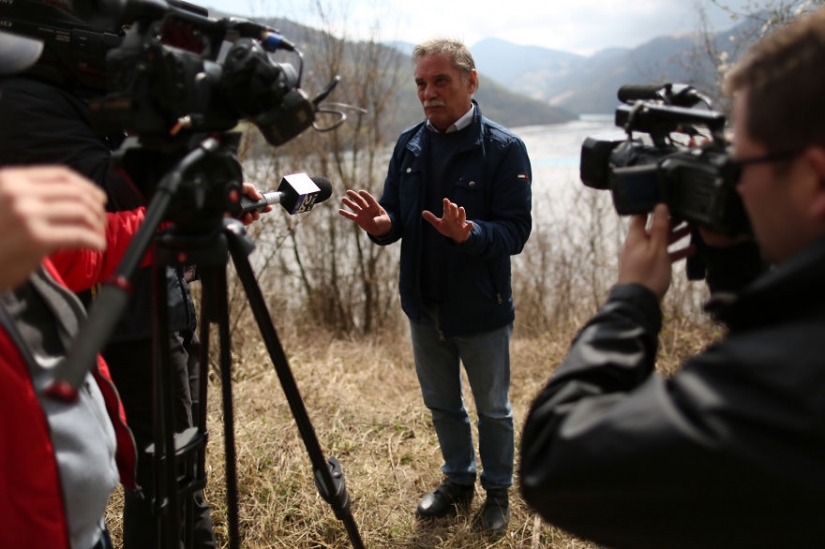
The general manager said that the residents who stayed in the valley, after they were given monetary compensation, "live in our homes. But we are tolerant of the situation as long as they do not interfere with the work of the mines."
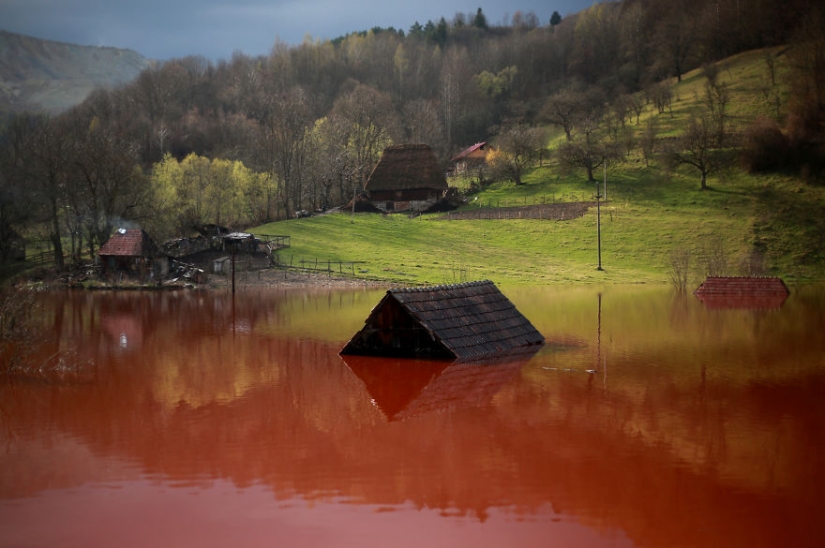
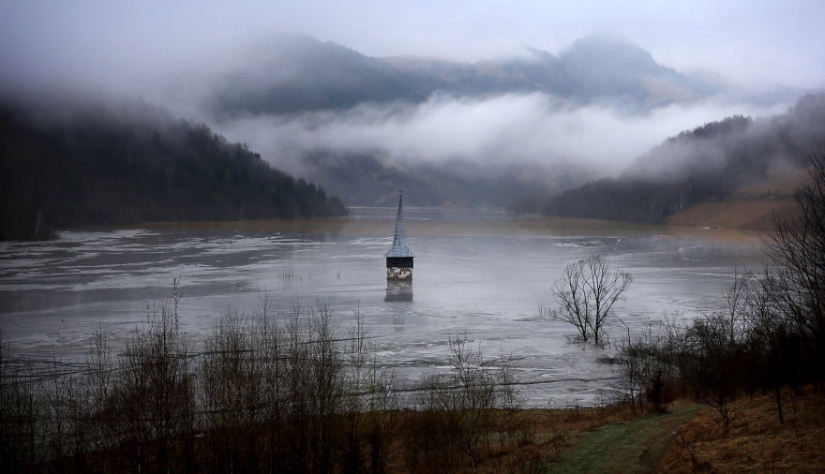
A local resident told the photographer that they tried to dismantle the church spire five years ago. The work was stopped due to angry protests from local residents. However, the level of the waste lake continues to rise, and soon there will be no one left in the valley.
Keywords: Ecology | Europe | Mine | Residents | Waste | Romania | Mines | Industry | Field
Post News ArticleRecent articles

It's high time to admit that this whole hipster idea has gone too far. The concept has become so popular that even restaurants have ...

There is a perception that people only use 10% of their brain potential. But the heroes of our review, apparently, found a way to ...
Related articles

Ah, Italy, a beautiful country with divine cuisine, rich history and beautiful landscapes. Here every tourist will find something ...

In the world there are a lot of things covered mystical, sometimes macabre stories. Mirror, bringing misfortune, paintings, causing ...

Fritz Haarmann — German vampire killer, distinguished by remarkable cruelty and cynicism. His victims were young men, as he had ...

New Year's is a time to surprise and delight loved ones not only with gifts but also with a unique presentation of the holiday ...